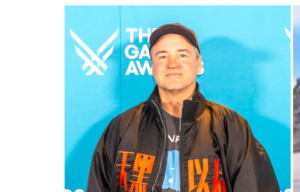Interview by Maria Lemonia
Oscar-nominated, screenwriter, playwright, actress, producer, and director—now, the ever-dynamic Nia Vardalos is bringing the play Tiny Beautiful Things to Pallas Theatre starting May 16, starring in it and performing in Greek for the first time. The play is her theatrical adaptation of Cheryl Strayed’s popular novel of the same name—a collection of real-life letters that anyone could have written while seeking solutions to their problems, with responses from the author filled with optimism.
In New York, Los Angeles, and many other parts of the world, Tiny Beautiful Things has been a great success, receiving rave reviews. For the internationally acclaimed artist we fell in love with in My Big Fat Greek Wedding, theatre remains her greatest passion, and she has much to share as she prepares for her arrival in Athens.

Gala: How did you decide to bring Tiny Beautiful Things, which you also co-direct, to Greece?
Nia Vardalos: Ever since I first presented it in 2016 in New York, the play has been performed in many countries, including the Philippines, Mexico, and Australia. So I thought, why not Greece? And then I thought, why not in Greek? So, bringing the play to Greece was an easy decision, even though the challenge of performing in Greek for the first time was definitely daunting. However, as an artist, I firmly believe that we must take risks that push us out of our comfort zones. And so, here we are in Greece, with the play in Greek!

G.: What made you choose this particular book to adapt for the stage?
N.V.: Tiny Beautiful Things was given to me by Thomas Kail, the director of the theatrical production Hamilton. I was captivated by the fact that it’s a collection of real letters from real, everyday people seeking guidance to overcome obstacles, big and small.
The creation of a play always depends on the inner storytelling, people’s thoughts, and their motivations. What fascinated me was what drove Cheryl Strayed to take on an advice column anonymously for over a year. All these elements led me to adapt this book into a play and now to bring it to Greece, translated by Spyros Katsaganis. Translating the play was a wonderful process, with a lot of discussion between us, and with Spyros having the freedom to render the text in everyday Greek.
G.: How has the play been received in the U.S. states where you have performed it?
N.V.: The beauty of human emotions is that they are a universal language. Every state and every theater had its own unique approach and audience reactions.
It was fascinating for me to feel the audience experiencing their own emotions through this play every night. Of course, every audience is different, and each person has their own personal reactions. But in the end, we are all the same—human beings simply seeking peace.
G.: What is your goal in bringing this performance to Greece?
N.V.: I know that we Greeks are a particularly emotional people, which is a very good thing! My goal is to share these stories. I don’t know what the outcome will be, nor will I ever try to tell the audience what to feel—I just hope they come with open hearts, just as we bring this play to Pallas with open hearts.
G.: Does your personality reflect Greek DNA?
N.V.: Absolutely. I believe my personality is 100% Greek. I love good food, I speak loudly, I’m very emotional, I work hard, and, of course, I believe that all words have Greek roots.


G.: Can we go back to your childhood and teenage years? What Greek traditions were present in your home?
N.V.: When I was little in Canada, every Sunday we went to church, and afterward, all the relatives and friends would gather for breakfast. I distinctly remember how much noise we made and how happy we were, as well as the sense of security I felt being close to my cousins.
One of my favorite memories is with my grandmother, Eugenia, rolling out dough for spanakopita and telling us stories from her childhood in the village. Growing up in Canada as a Greek was wonderful, and even though I often felt like a foreigner in Winnipeg—since Greeks were only 3,000 out of 600,000 residents—I later realized that all these experiences shaped both my worldview and my sense of humor.
G.: How did your family end up in North America?
N.V.: My mother’s family emigrated from Molai, a town in Laconia, to Canada. My father was born in Kalavryta, also in the Peloponnese, and later moved to Canada, where he met my mother, and they got married in Winnipeg.
When I finished college, it was my turn to leave for the U.S., while my brother moved to Australia—continuing our family’s “immigration tradition.”
G.: Having achieved international recognition, including an Oscar nomination, do you believe that America is truly the land of opportunity?
N.V.: That’s a very interesting question because I believe there are opportunities to succeed in many different ways and places, as long as we embrace the best parts of each.
Yes, the U.S. offers immense career opportunities, but Greece offers the chance to cultivate your soul and think in innovative ways. Meanwhile, Canada teaches you how to be a genuinely good and useful member of society. I feel fortunate to be able to seek opportunities and grow in all three places.
G.: Can you tell us about your Greek friends in the U.S.?
N.V.: There are many Greeks in Los Angeles working in the entertainment industry, and we are very lucky that every year Ann and Jim Gianopulos host us for Easter, giving us the chance to all gather together.
It’s wonderful—we all come together, from Alexander Payne, Billy Zane, Tom Hanks, and Rita Wilson to Ted Sarandos. We keep our traditions alive, and yes, we go to church for the Resurrection service and follow the customs.
G.: Were there people who played a crucial role in your career development?
N.V.: I had a theater school professor in Toronto who gave me some very valuable advice. He told me that I would have much better control over my career and the roles I truly wanted to play if I created my own material.
Up until that moment, I had never written anything. Everything started at the Second City Theatre in Toronto.
G.: May I ask about your family—can you tell us a little about your daughter?
N.V.: What can I say about my daughter… As much of a Greek mom as I am, she’s now an adult, so it’s best that she speaks for herself through her work.
G.: How often do you visit Greece?
N.V.: Once or twice a year, and I choose my destination depending on the season. In the summer, I love swimming early in the morning in the incredible waters of our islands.
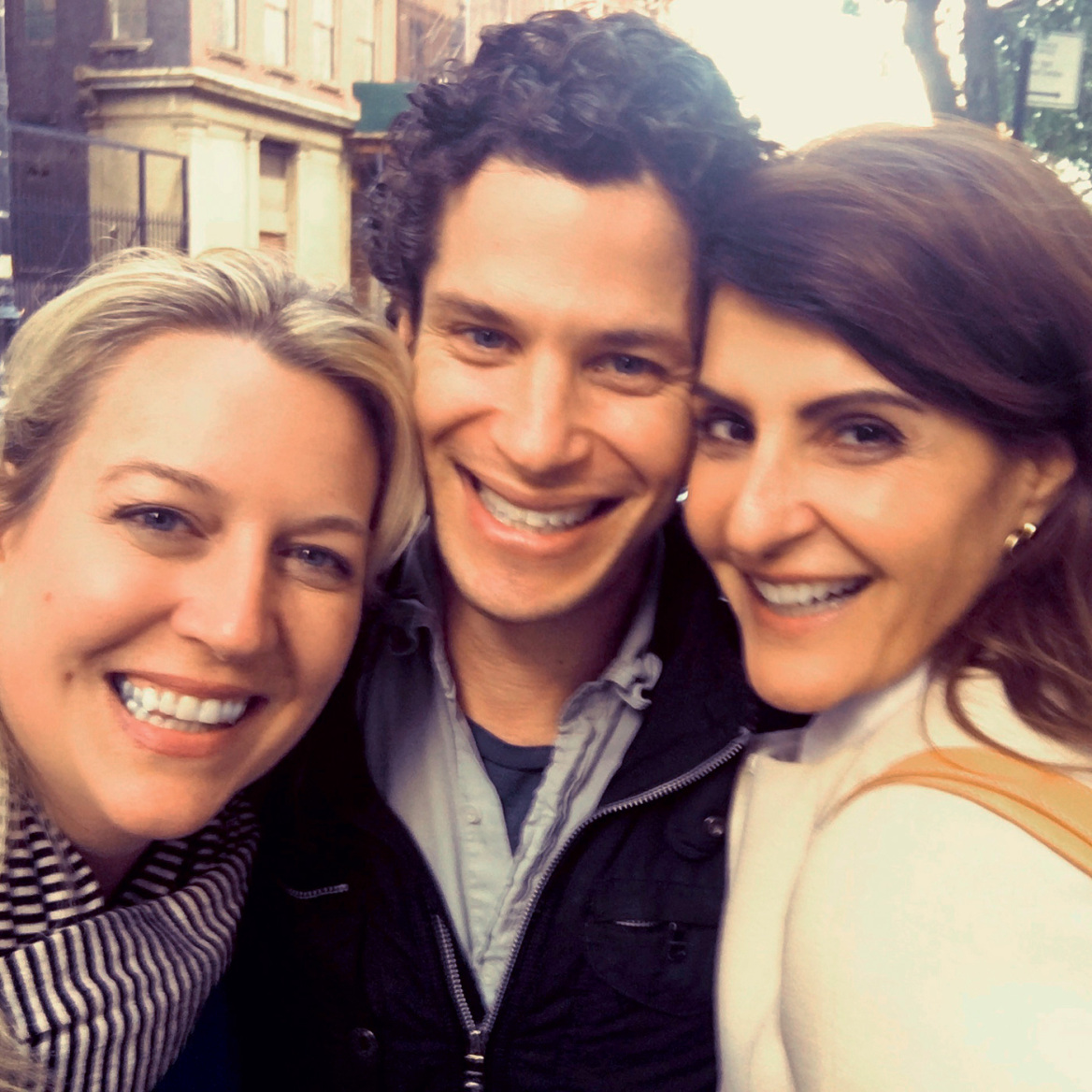
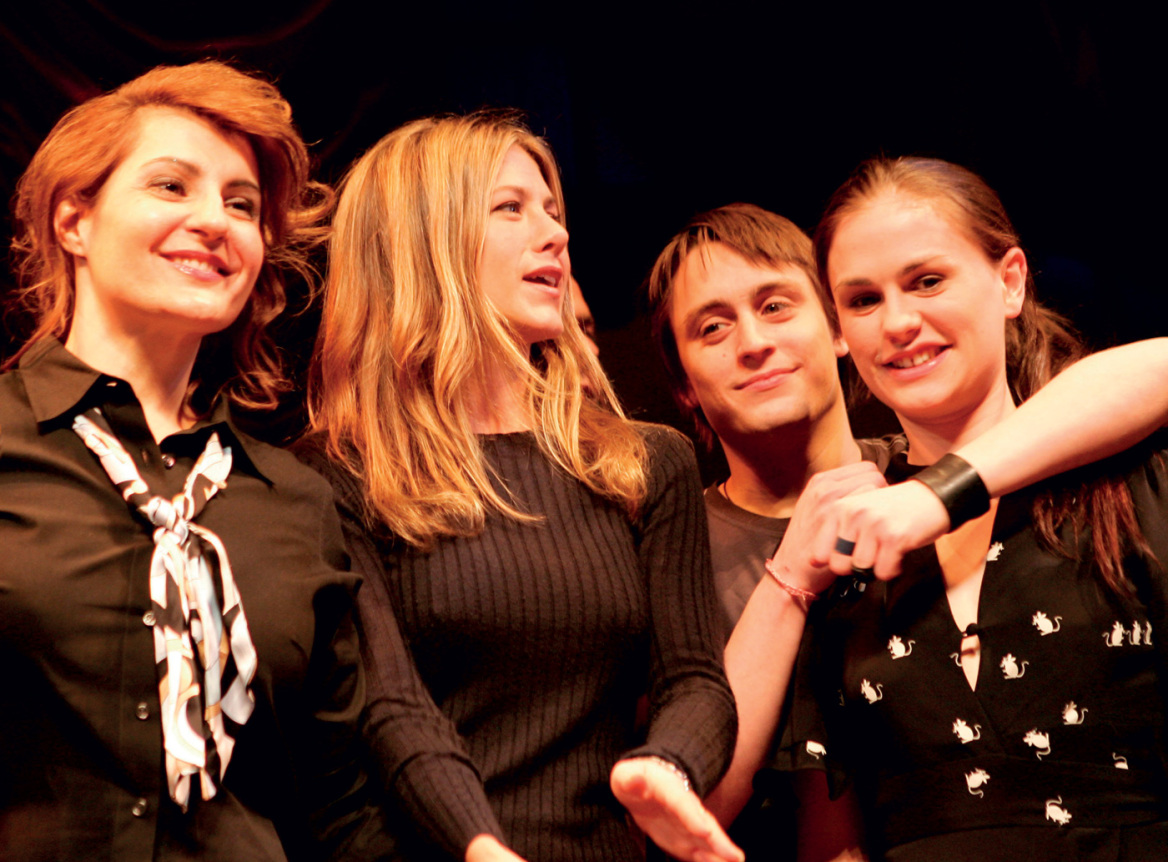
G.: Do you have a life motto?
N.V.: “No matter how many no’s you hear, one yes is always enough.”
So many people said no to my script for My Big Fat Greek Wedding—but luckily for me, Rita Wilson and Tom Hanks said the big yes!
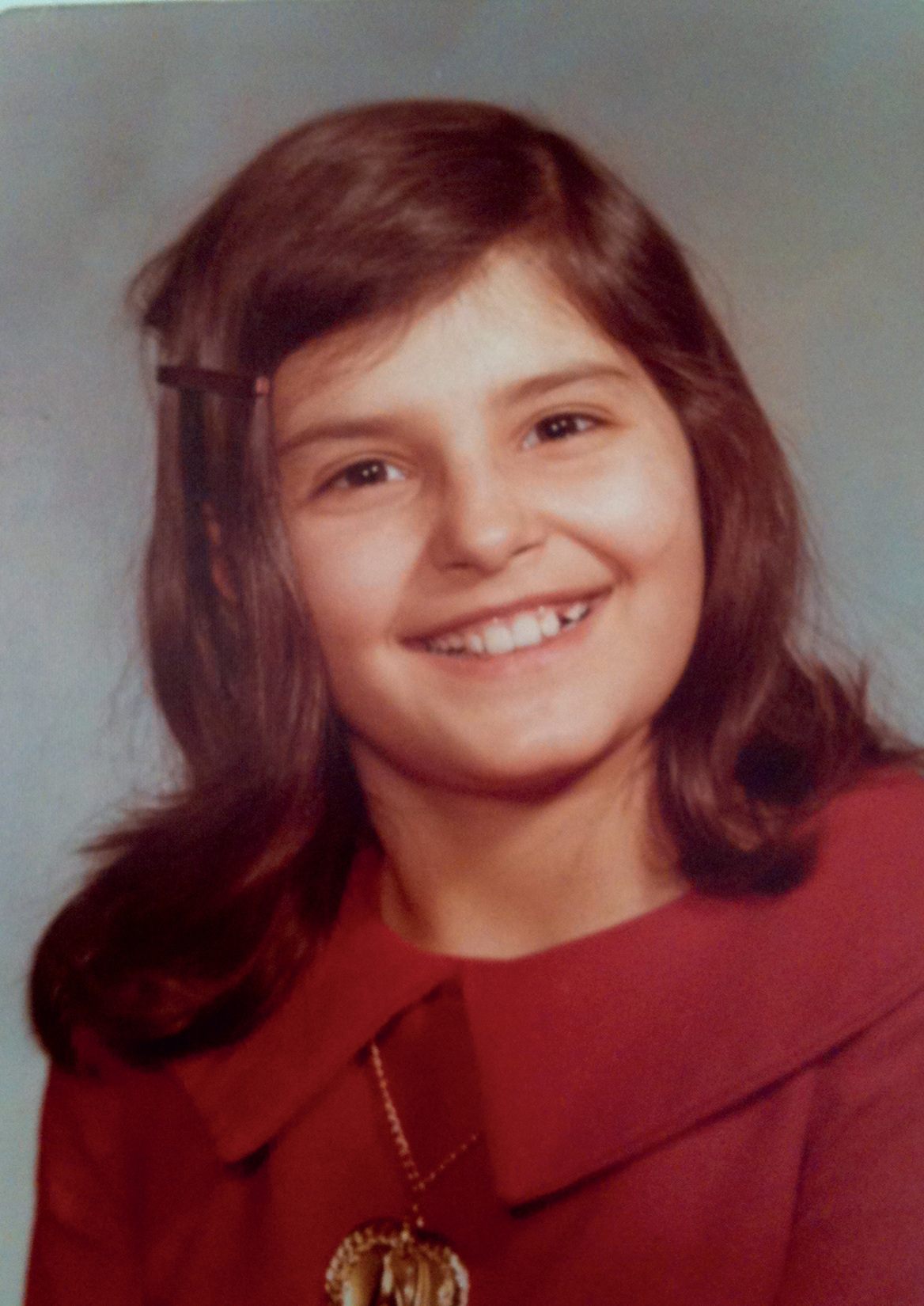
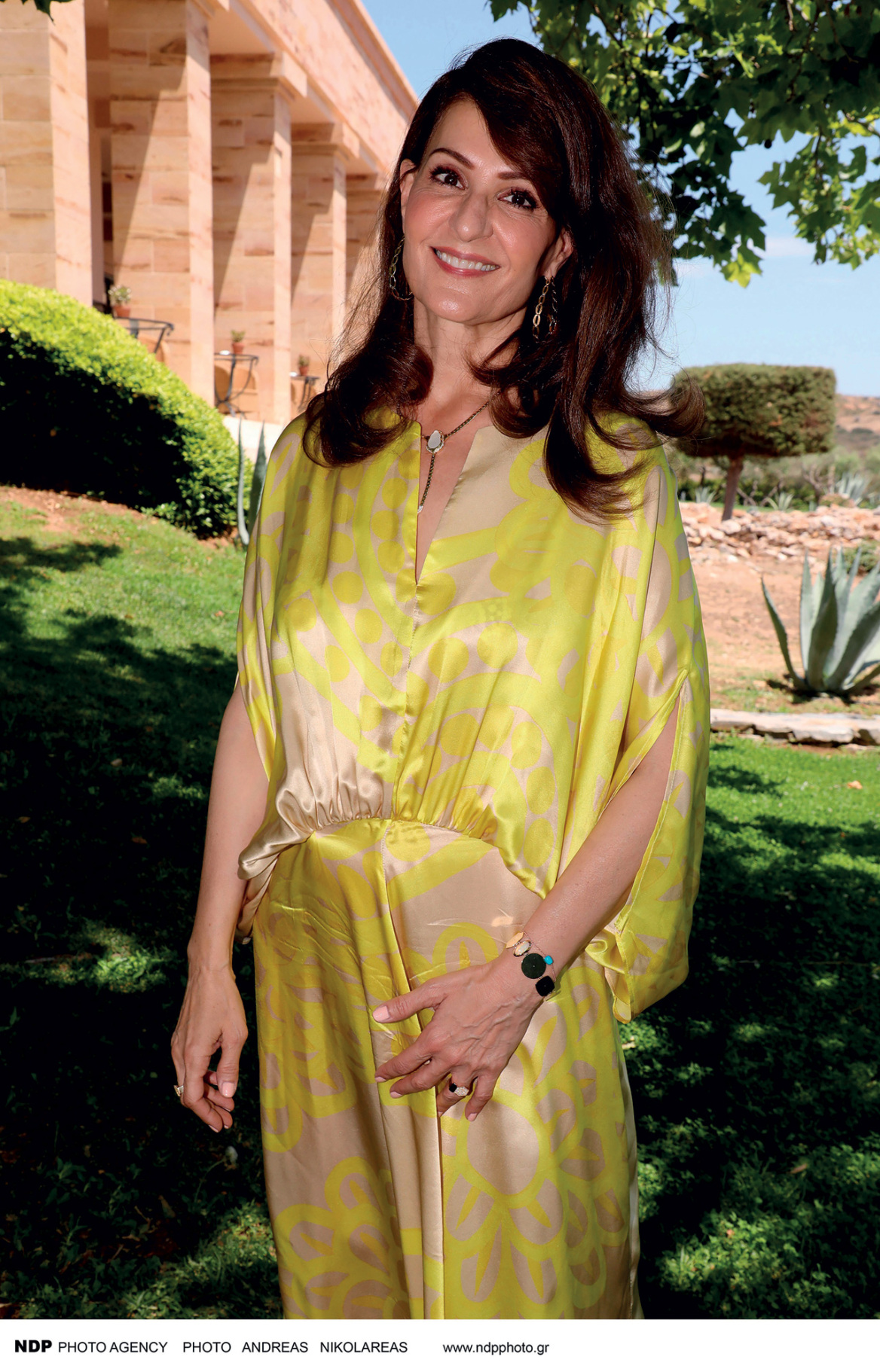
G.: What are your upcoming plans?
N.V.: I hope to make more movies. I’m always writing new material and creating roles I want to play. I’d also love to produce a musical—and why not, in Greece!
G.: What’s the first thing you want to do when you arrive in Athens?
N.V.: Right now, I can only think of one thing that includes everything: a dinner under the Athenian sky, with a view of the city, loud music, and all my favorite people around me. That alone.
Ask me anything
Explore related questions




